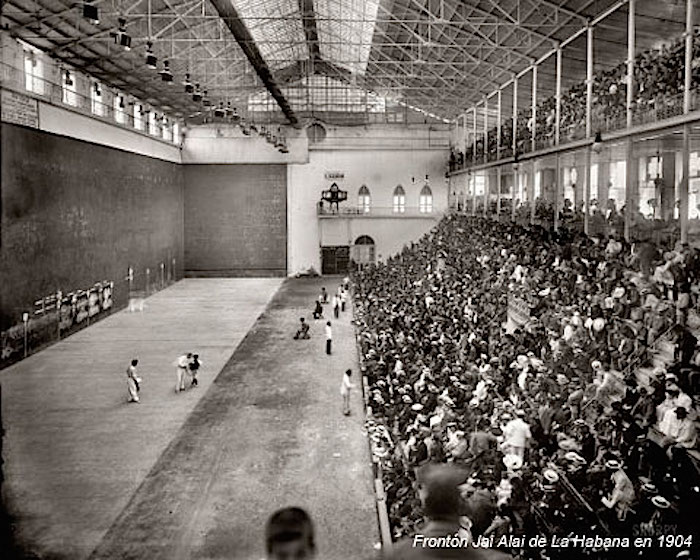This article was translated by John R. Bopp
The sports section of the Rede Globo website is dedicating special coverage to the Panamerican Games being held July 26 to August 11 in Lima.
In this section, they just published an article about sports that are being played for the first time in this edition of the Panamerican Games. Among them is Basque pelota, or pelota vasca. While this sport may not be as widely practiced as others, it does have its history, prestige, and spectacle; enough to be a part of the Olympic Games, at least as much as curling, skeleton, and beach volleyball have.
This is even more true if we remember that pelota vasca has a significant presence in a large number of the countries participating in the continental games, including Brazil itself.
That’s why it’s a little disappointing, to say the least, that in this report many Brazilians will read, there are several notable errors.
The first is that they claim the sport was born “in the Basque Country, in Spain”. We’re not sure what our compatriots living north of the Pyrenees might think of that, but we doubt it will please them.
Nor do we understand where the claim that this is a sport that “has tried to become more popular in the last few decades, unsuccessfully” comes from, but it’s clear that whoever wrote this understands little of the long history and great presence of this sport in a number of countries around the world.
Another glaring mistake is the claim that pelota vasca was only ever played in one edition of the Olympics, as an exhibition sport in Barcelona (thereby insinuating that this only happened because it was a “Spanish” sport). The fact of the matter is that this mistake, this glaring mistake, would’ve been quite easy to avoid, just by looking it up on Wikipedia.
There, it’s quite clear to see that it was an Olympic sport in 1900, and an exhibition sport in Paris in 1924, Mexico City in 1968, and in Barcelona in 1992.
Ignorance is not an excuse for not writing a truthful article, at least when covering the basics, especially in this day and age, when all this information is widely available on the internet. The fact that this is still happening shows immense disdain and lack of respect to one’s readers and to the Truth.
To get to know more about the history, importance, and reach of pelota vasca, there are plenty of articles on our blog. And even more all over the internet!
Globo – 23/7/2019 – Brazil
Pelota basca, raquetebol, stand up paddle…: os esportes que estão no Pan e você talvez não saiba
Aquelas suas manhãs na praia em cima de uma prancha de stand up paddle podem render bem mais que uma foto nas redes sociais. Isso porque o esporte, queridinho dos brasileiros praianos e de turistas, é uma das atrações dos Jogos Pan-Americanos de Lima, que começam nesta sexta-feira.
(Follow) (Automatic translation)


Last Updated on Dec 20, 2020 by About Basque Country




